Outrage over polluted Yangtze River with excrement and urine
Updated: 2015-01-05 14:02
(Xinhua)
|
||||||||
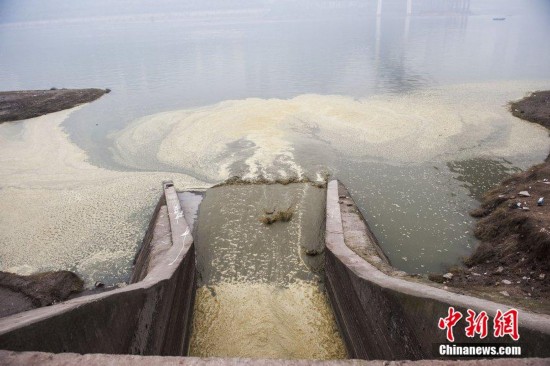 |
|
The untreated waste of excrement and urine is seen being dumped into the Yangtze River near the Egongyan Bridge in southwest China's Chongqing Municipality on Jan 2, 2015. [Photo/chinanews.com] |
BEIJING - The Egongyan Bridge in southwest China's Chongqing Municipality is truly a "bridge over troubled water", as the discolored current passing beneath it is thick with excrement and urine.
On Sunday, pictures of septic water flowing into the Yangtze River, China's most important waterway, went viral and caused a wave of condemnation from outraged Internet users.
According to the China News Agency, the untreated waste was being dumped into the river via a five-meter-wide outfall. Some 50 meters down steam, a major factory pumps water from the river before supplying it to local residents in the municipality.
Local authorities have removed the pollution source and vowed to punish the company responsible, but that is not enough to soothe public ire. On microblog Sina Weibo, angry netizens lashed out at the authorities' inaction.
On comment said: "With such water quality, how do you dare to carry on with the south-to-north water diversion project?"
The water scandal comes on the heels of a similar incident exposed less than two weeks ago.
On Dec. 25, China's state broadcaster CCTV ran a special program on water contamination, in which it said Shandong Lukang Pharmaceutical Co. Ltd. had been secretly discharging wastewater that contained antibiotics.
In addition, sample tests on major waterways, including the Yangtze River, the Zhujiang River and the Haihe River, all showed traces of antibiotics, with the Zhujiang River in south China being the most severely polluted, according to CCTV.
In recent years, China has ramped up efforts to prevent water pollution. Its latest effort, the revised Environmental Protection Law, which came into effect on Jan. 1, brings heavier punishments for those that fail to rectify violations.
However, recurring pollution begs one question: Why does such a practice still exist despite the threat of punishments?
Wang Xiaojun, a professor with the College of Environment and Energy at South China University of Technology, said some small company heads assume their dirty secrets will not be discovered.
"Some bigger companies have 'shelters' behind them," Wang said, explaining that these "shelters" were basically local officials that relied on polluting companies' taxes.
Huang Shaohua, a professor with the Philosophy and Sociology School of Lanzhou University, said lax supervision, as well as light punishments were to blame.

 Harbin gets ready for ice and snow festival
Harbin gets ready for ice and snow festival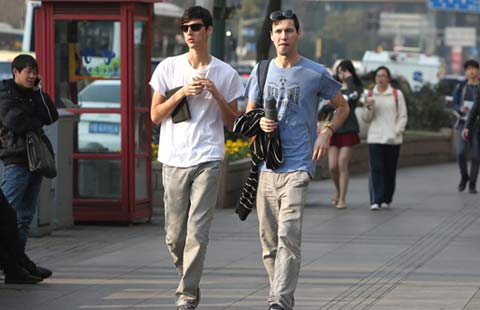
 Shanghai, Nanjing heat up just before predicted cold
Shanghai, Nanjing heat up just before predicted cold
 Police frontier force conducts military exercise
Police frontier force conducts military exercise
 Carpenter creates e-vehicle with wood in Shenyang
Carpenter creates e-vehicle with wood in Shenyang
 Thousands gather in NYC for funeral for slain police officer
Thousands gather in NYC for funeral for slain police officer
 Scars of honour
Scars of honour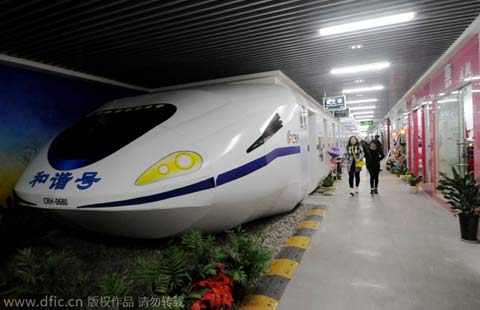
 Mall turns shops into rail carriages
Mall turns shops into rail carriages
 Martial arts conference to be held in Georgia
Martial arts conference to be held in Georgia
Most Viewed
Editor's Picks
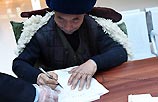
|

|

|

|
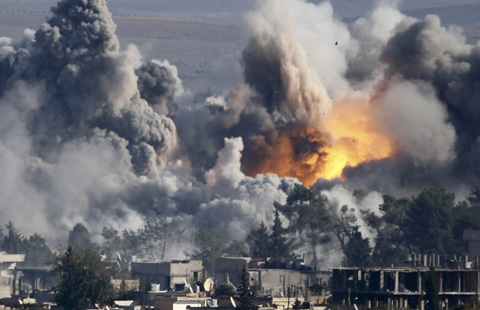
|

|
Today's Top News
What's in store for the stock market in 2015?
Alleged serial killer stands trial in North China
College uses Shanghai stampede to justify its policies
China braces for slower but better growth in 2015
New York mourns slain Chinese-American police officer
Chinese VP attends Brazilian president's 2nd-term inaugural
Brazil uses antidumping measures against China
Thousands gather in NYC to see off slain policeman
US Weekly

|

|







